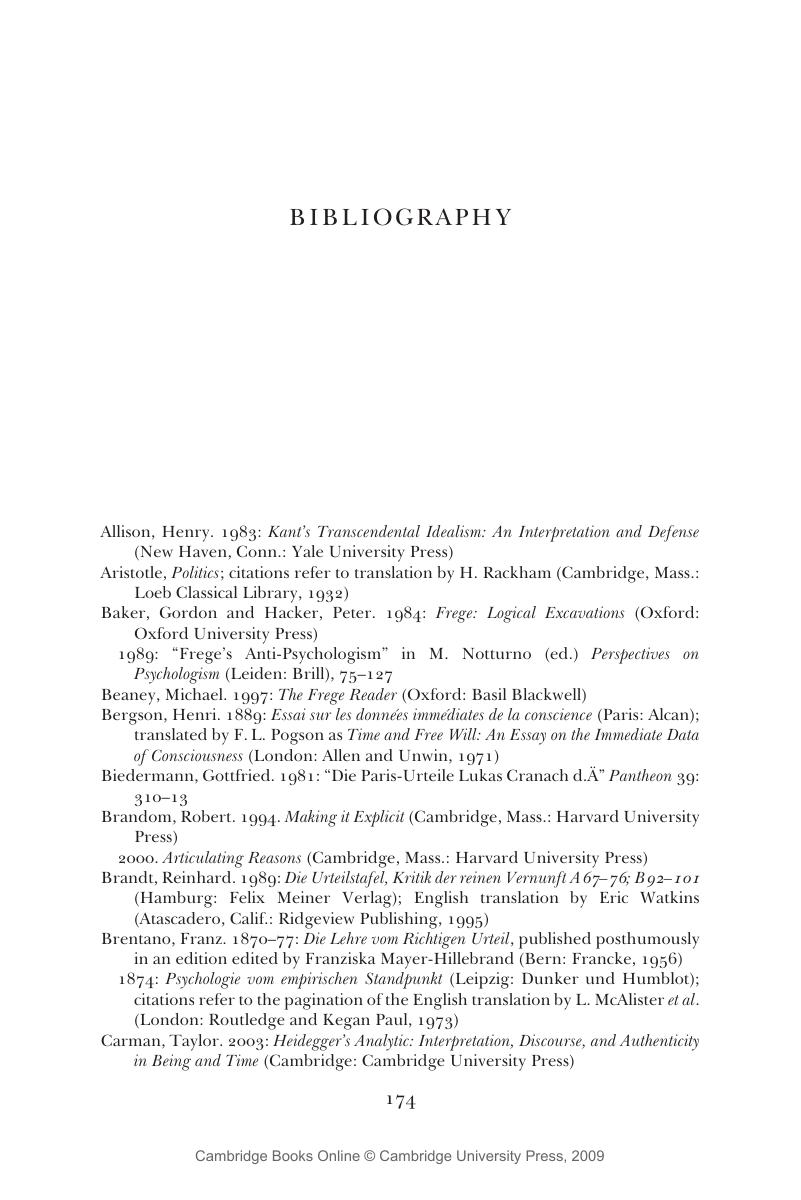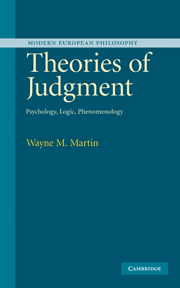Book contents
- Frontmatter
- Contents
- List of figures
- Acknowledgments
- Principles of citation
- Introduction: the faces of judgment
- 1 The psychology of judging: three experimental approaches
- 2 Judgment as synthesis, judgment as thesis: existential judgment in Kantian logics
- 3 The judgment stroke and the truth predicate: Frege and the logical representation of judgment
- 4 Heidegger and the phenomeno-logic of judgment: methods of phenomenology in the dissertation of 1913
- 5 Elements of a phenomenology of judgment: judgmental comportment in Cranach's Judgment of Paris
- Bibliography
- Index
- References
Bibliography
Published online by Cambridge University Press: 22 September 2009
- Frontmatter
- Contents
- List of figures
- Acknowledgments
- Principles of citation
- Introduction: the faces of judgment
- 1 The psychology of judging: three experimental approaches
- 2 Judgment as synthesis, judgment as thesis: existential judgment in Kantian logics
- 3 The judgment stroke and the truth predicate: Frege and the logical representation of judgment
- 4 Heidegger and the phenomeno-logic of judgment: methods of phenomenology in the dissertation of 1913
- 5 Elements of a phenomenology of judgment: judgmental comportment in Cranach's Judgment of Paris
- Bibliography
- Index
- References
Summary

- Type
- Chapter
- Information
- Theories of JudgmentPsychology, Logic, Phenomenology, pp. 174 - 181Publisher: Cambridge University PressPrint publication year: 2006



